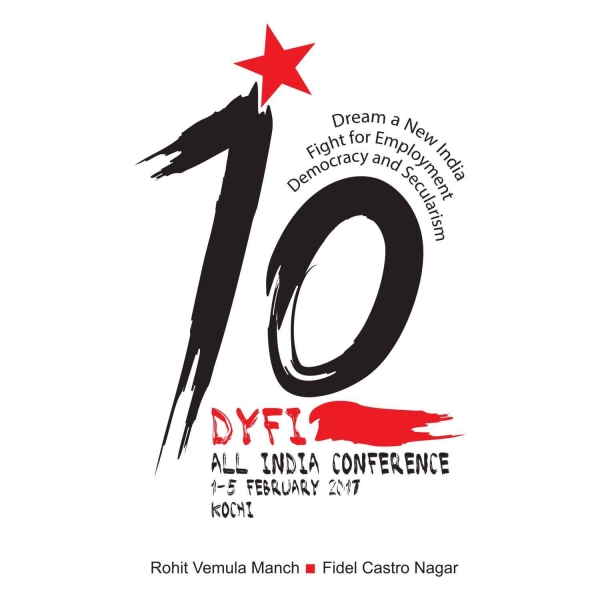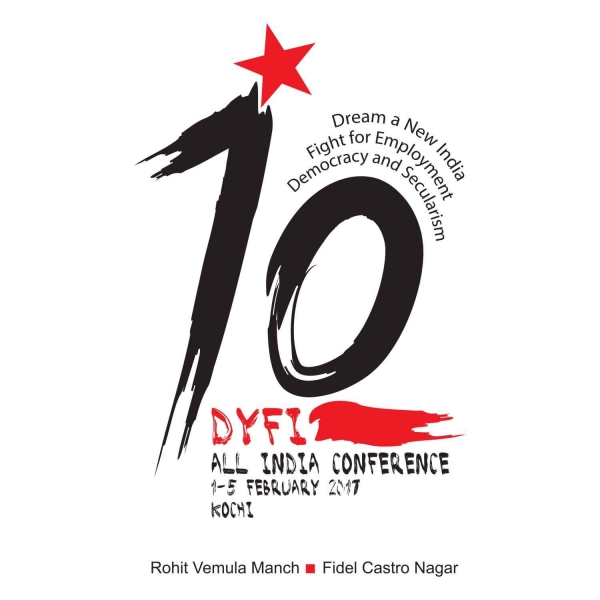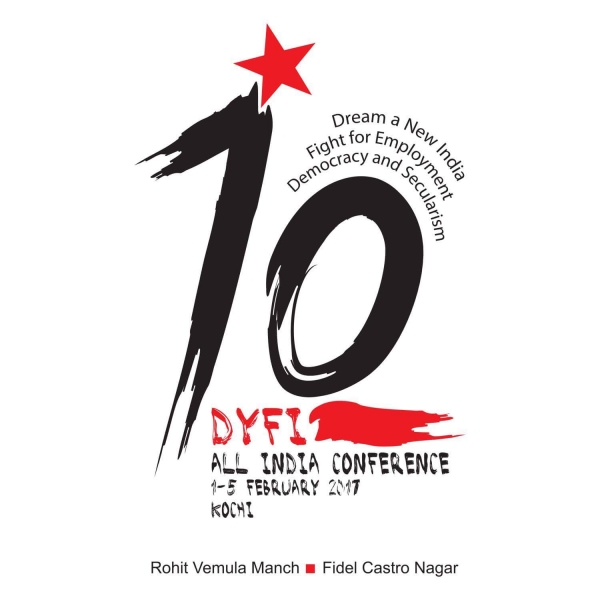Resolution adopted unanimously by 10th All India Conference of DYFI- Restore peace and autonomy in Kashmir Featured
Ever since the accession of Jammu & Kashmir to the Indian Union in October 1947 the question of Kashmir has been not just a territorial dispute for India but a test of the secular, democratic and federal nature of the Indian Republic.
The Constituent Assembly which was drafting the Constitution incorporated Article 370 in it. This Article provided a special status to J&K different from the other states of the Indian Union. J&K was to have its own Constituent Assembly to draft its Constitution. J&K was provided wider autonomy and the subjects on which the Union Government could legislate and decide on J&K were restricted to Defence, Foreign affairs and Communication. Residuary powers were to be vested with the J&K legislature.
The Delhi Agreement signed in 1952 between the representatives of the Union Government and the Kashmir Government defined certain other features of this special status. Though the Jammu & Kashmir Constituent Assembly adopted a motion approving that agreement and Parliament of India also accepted it, the implementation of the agreement did not take place. The rift between Sheikh Abdullah who was the Prime Minister of J&K and the Centre increased from then onwards. The Sheikh was arrested in August 1953 on the grounds that he was aiming for independence of Kashmir. He was released from detention only in 1964 and subsequently rearrested again in 1965.
The subsequent history of Kashmir is a history of the denial of democracy. It is a history of broken promises and commitments and the inability of the Indian ruling classes to recognize that J&K has a special status in the Indian Union given its history at the time of independence and partition. After 1953, steadily the process of centralising and denying autonomy for the state began and advanced throughout the sixties, seventies and eighties. Article 370 was subverted and misused to eliminate most aspects of the autonomy accorded to the state. Accompanying the erosion of autonomy has been the denial of democracy and the suppression of democratic rights in the state.
The Amarnath shrine land controversy which erupted in 2008, in which the BJP appointed Governor, Lt. Gen. Sinha played a provocative role and the removal of Kashmiri pundits from Kashmir to Jammu has hardened the communal division between Jammu and the valley. The agitation and the counter agitation disrupted the ties between the peoples of the two regions. Just as communal feelings have been aroused in Jammu there is the disturbing growth of Islamic fundamentalism in the valley.
The recent people’s unrest erupted after the encounter death of Burhan Wani and his associates. The brutal force used against protesters by the police and the armed forces that resulted in these unfortunate killings is to be condemned. Human rights activists like Khurram Pervez were detained since he raised the human rights violation and was not allowed to travel out of the country.
The 10th All India conference of DYFI expresses its deep anguish at the tragic deaths, injuries, continuous disruption of normal life in Jammu and Kashmir. We denounce human rights violations by the army and paramilitary forces and terrorist attacks aided from across the border. We oppose all efforts by rightwing forces of all ideological persuasions to feed people in the rest of the country with various stereotypes about the Kashmiri people. The BJP and the communal forces have been depicting the Kashmiris as secessionists, terrorists and pro-Pakistan. They are trying to utilize the conflicts in Kashmir to reinforce the narratives of religious hatred which is the mainstay of their politics. DYFI stands in solidarity with the people of Kashmir and for democratic unity of Kashmir with the rest of Indian union.
The 10th All India Conference of DYFI demands:
- Immediate repeal of AFSPA.
- To constitute a commission of Inquiry headed by a retired Supreme Court Judge to probe the recent civilian killings in Kashmir.
- Immediate cessation of inhuman methods being adopted by security forces against the youth of Kashmir.
- Compensation to the families of all those who have lost their lives in the firing by both paramilitary forces and militants.
- Government jobs to all youth who became completely disabled and those who lost eye sight due to firing of pellet guns.
- That the Central Government must initiate a process of structured dialogue with all stake holders reversing the erosion of Article 370. The three regions of the state, Jammu, the Kashmir valley and Ladakh, should have autonomous structures within the State of Jammu & Kashmir.
- This conference urges the youth in every part of India to stand in solidarity with the people of Kashmir and not to be part of the communal bandwagon that is trying to widen the gulf between people of India and Kashmir.




 Central Executive Committee
Central Executive Committee








Comments on Post (4)
Mason Gray
Many communities in the disease zones have inadequate sanitation that allow frequent trash piles and open sewers to serve as mosquito breeding and feeding grounds, according to the final outcome statement from the Aedes aegypti summit last month.
Johny Elite
Lorem ipsum dolor sit amet, consectetur adipiscing elit. Nam viverra euismod odio, gravida pellentesque urna varius vitae, gravida pellentesque urna varius vitae.
Rog Kelly
Lorem ipsum dolor sit amet, consectetur adipiscing elit. Nam viverra euismod odio, gravida pellentesque urna varius vitae, gravida pellentesque urna varius vitae.
James Warson
Many communities in the disease zones have inadequate sanitation that allow frequent trash piles and open sewers to serve as mosquito breeding and feeding grounds.